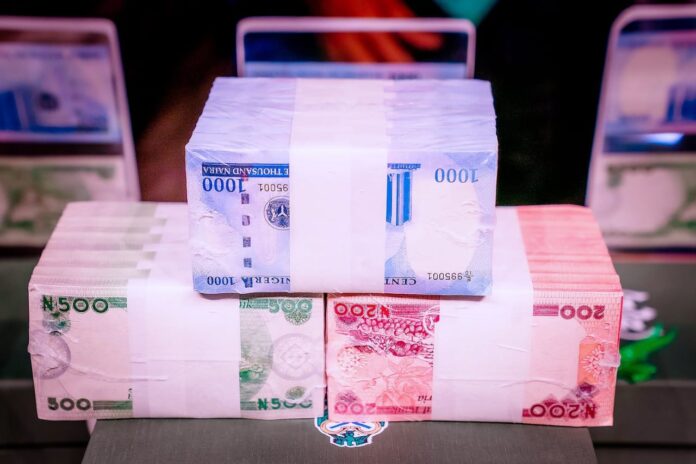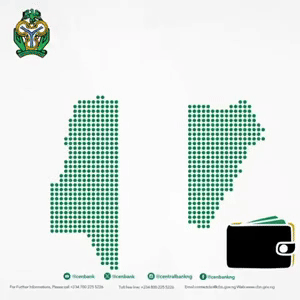The naira sustained its gains yesterday, closing at N1,480/$1 at the official Nigerian Foreign Exchange Market.
According to data from the CBN, the naira traded at N1,480/$ continuing the positive trajectory that began in early September when it opened at N1,526.09/$.
The parallel market mirrored the trend, with the naira strengthening to between N1,490/$ and N1,495/$ in the course of the week.
The local currency rebound is being driven by a combination of stronger demand for the naira, reduced speculative trading, and rising foreign reserves now at $43.05 billion.
CBN Governor, Olayemi Cardoso announced that gross external reserves remained robust at $43.05 billion on September 11, 2025, compared with $40.51 billion at end-July 2025 with an import cover of 8.28 months.
“Similarly, the second quarter 2025 current account balance recorded a significant surplus of $5.28 billion compared with $2.85 billion in first quarter of 2025,” Cardoso stated during the 302nd monetary policy committee meeting held this week in Abuja.
Analysts insist that the forex reforms instituted by the Cardoso-led CBN are stabilizing the exchange rates and improving overall health of the economy.
The reforms were instituted to entrench transparency, accountability and improve dollar access in the foreign exchange market.
Analysts at Commercio Partners, attributed the rally to a combination of stronger demand for the naira, reduced speculative trading, and improved foreign reserves.
Head of Research at Commercio Partners, Ifeanyi Ubah, expressed optimism that the positive sentiment would be sustained in the near term, supported by increasing external buffers.
“Nigeria’s rising external reserves are reflecting a healthier external position for the country. With reserves strengthening, speculative activity subsiding, and oil earnings supporting inflows, many market watchers believe the naira’s current rally has a stronger foundation compared to previous cycles of volatility,” he said.
However, other experts caution that sustaining this momentum will depend on the government’s ability to maintain macroeconomic discipline, boost crude oil production, and diversify export earnings.
President, Association of Bureaux De Change Operators of Nigeria (ABCON), Aminu Gwadabe, said the policy shifts showed the level of creativity, policy and hard work the Cardoso puts in ensuring that more forex flows into the economy and remain accessible to businesses.
He said diaspora remittances to Nigeria, estimated at $23 billion annually remain a reliable source of forex to the domestic economy. There are also other sources and policies that are being explored by the apex bank to keep dollar inflows coming.
Cardoso-led CBN recently announced quantum leap in the net FX reserve position at $23.11 billion at the end of last year before hitting current milestone. Cardoso had upon assuming office in October 2023, prioritized reforms to rebuild Nigeria’s economic buffers and strengthen resilience.
In the foreign exchange market, the apex bank faced a backlog of over $7 billion in unfulfilled commitments and a fragmented FX regime characterized by multiple forex rates, which had encouraged arbitrage opportunities.
“Over the past year, we have undertaken critical reforms to unify Nigeria’s exchange rate, eliminating distortions and restoring transparency. This unification has enabled us to clear the outstanding foreign exchange obligations, giving businesses—ranging from manufacturers to airlines—the confidence to plan and invest in the future. To further enhance the functionality of the foreign exchange market, we are introducing an electronic FX matching system, which has proven effective in other markets,” Cardoso said.
Foreign capital inflows to the domestic economy remains crucial elements in the drive to achieve monetary and fiscal policy stability.
The apex bank is cultivating more sources of FX to increase dollar inflows, boost access to manufacturers and retail end users.
From moves to boost diaspora remittances through new product development, the granting licenses to new International Money Transfer Operators (IMTOs), implementing a willing buyer-willing seller FX model, and enabling timely access to naira liquidity for IMTOs, the CBN has simplified dollar-inflow channels for FX dealers to boost business and economic growth.
Other analysts said that with improvement in exchange rate, comes reduced cost for import. Importation costs in Nigeria include various taxes and charges, primarily import duties, VAT, and other levies. These costs are calculated based on the CIF value (Cost, Insurance, and Freight) of the goods, which includes the cost of the goods, insurance, and shipping.
The cost, insurance and freight (CIF) price is the price of a good delivered at the frontier of the importing country, or the price of a service delivered to a resident, before the payment of any import duties or other taxes on imports or trade and transport margins within the country.
Changes in exchange rate can significantly impact the cost of imports, as duties and other charges are often calculated based on the prevailing exchange rate.


